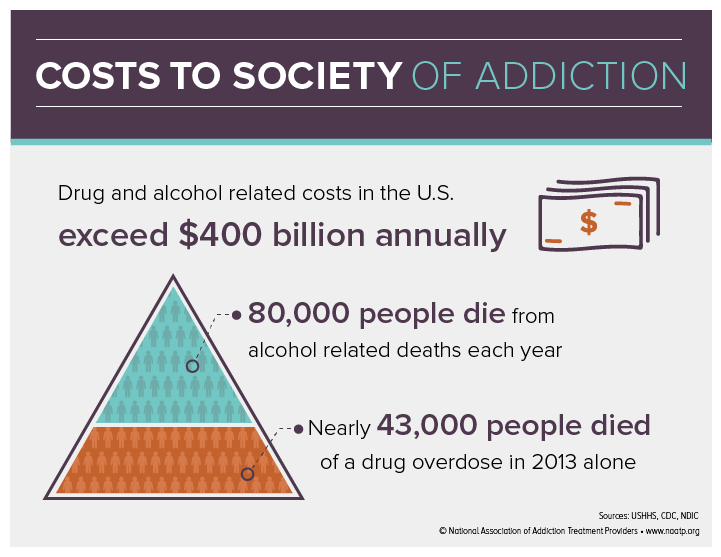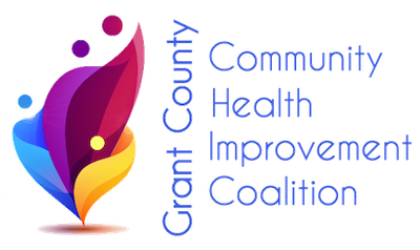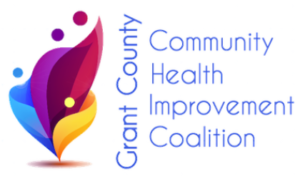LEARN MORE ABOUT
Substance Abuse
Addiction is a complex condition, a brain disease that is manifested by compulsive substance use despite harmful consequence. People with addiction (severe substance use disorder) have an intense focus on using a certain substance(s), such as alcohol or drugs, to the point that it takes over their life. They keep using alcohol or a drug even when they know it will cause problems. Yet a number of effective treatments are available, and people can recover from addiction and lead normal, productive lives.
- to feel good — feeling of pleasure, “high”
- to feel better — e.g., relieve stress
- to do better — improve performance
- curiosity and peer pressure
- Impaired control: a craving or strong urge to use the substance; desire or failed attempts to cut down or control substance use.
- Social problems: substance use causes failure to complete major tasks at work, school or home; social, work or leisure activities are given up or cut back because of substance use
- Risky use: substance is used in risky settings; continued use despite known problems
- Drug effects: tolerance (need for larger amounts to get the same effect); withdrawal symptoms (different for each substance)
How Is Addiction Treated?
Effective treatments for addiction are available. The first step on the road to recovery is recognition of the problem. The recovery process can be hindered when a person denies having a problem and lacks understanding about substance misuse and addiction. The intervention of concerned friends and family often prompts treatment. A health professional can conduct a formal assessment of symptoms to see if a substance use disorder exists. Even if the problem seems severe, most people with a substance use disorder can benefit from treatment. Unfortunately, many people who could benefit from treatment don’t receive help. Because addiction affects many aspects of a person’s life, multiple types of treatment are often required. For most, a combination of medication and individual or group therapy is most effective. Treatment approaches that address an individual’s situation and any co-occurring medical, psychiatric and social problems can lead to sustained recovery. Medications are used to control drug cravings and relieve severe symptoms of withdrawal. Therapy can help addicted individuals understand their behavior and motivations, develop higher self-esteem, cope with stress and address other mental health problems. Treatment may also include: o Hospitalization o Therapeutic communities (highly controlled, drug-free environments) or sober houses o Outpatient programs Many people find self-help groups for individuals (Alcoholics Anonymous, Narcotics Anonymous) as well as their family members (Al-Anon or Nar-Anon Family Groups) useful.
Prevention
Drug addiction is preventable. Drug education and prevention efforts aimed at children and adolescents and involving families, schools, communities and media can be effective in reducing drug misuse.
Risk and Protective Factors for Drug Misuse and Addiction
- Aggressive behavior in childhood/Good self-control
- Poor social skills/Positive relationships
- Availability of drugs at school/School anti-drug policies
- Lack of parental supervision/Parental monitoring and support
- Drug experimentation/Academic competence
- Community poverty/Neighborhood pride
13 Principles of Effective Drug Addiction Treatment
These 13 principles of effective drug addiction treatment were developed based on three decades of scientific research. Research shows that treatment can help drug-addicted individuals stop drug use, avoid relapse and successfully recover their lives.
- Addiction is a complex, but treatable, disease that affects brain function and behavior.
- No single treatment is appropriate for everyone.
- Treatment needs to be readily available.
- Effective treatment attends to multiple needs of the individual, not just his or her drug abuse.
- Remaining in treatment for an adequate period of time is critical.
- Counseling— individual and/or group —and other behavioral therapies are the most commonly used forms of drug abuse treatment.
- Medications are an important element of treatment for many patients, especially when combined with counseling and other behavioral therapies.
- An individual’s treatment and services plan must be assessed continually and modified as necessary to ensure it meets his or her changing needs.
- Many drug-addicted individuals also have other mental disorders.
- Medically assisted detoxification is only the first stage of addiction treatment and by itself does little to change long-term drug abuse.
- Treatment does not need to be voluntary to be effective.
- Drug use during treatment must be monitored continuously, as lapses during treatment do occur.
- Treatment programs should assess patients for the presence of HIV/AIDS, hepatitis B and C, tuberculosis and other infectious diseases, as well as provide targeted risk-reduction counseling to help patients modify or change behaviors that place them at risk of contracting or spreading infectious diseases.
Source: National Institute on Drug Abuse. These principles are detailed in NIDA’s Principles of Drug Addiction Treatment: A Research-Based Guide.
How to Help a Friend or Family Member
Some suggestions to get started:
- Learn all you can about alcohol and drug misuse and addiction.
- Speak up and offer your support: talk to the person about your concerns, and offer your help and support, including your willingness to go with them and get help. Like other chronic diseases, the earlier addiction is treated, the better.
- Express love and concern: don’t wait for your loved one to “hit bottom.” You may be met with excuses, denial or anger. Be prepared to respond with specific examples of behavior that has you worried.
- Don’t expect the person to stop without help: you have heard it before – promises to cut down, stop – but, it doesn’t work. Treatment, support, and new coping skills are needed to overcome addiction to alcohol and drugs.
- Support recovery as an ongoing process: once your friend or family member is receiving treatment, or going to meetings, remain involved. Continue to show that you are concerned about his/her successful long-term recovery.
Some things you DON’T want to do:
- Don’t preach: Don’t lecture, threaten, bribe, preach or moralize.
- Don’t be a martyr: Avoid emotional appeals that may only increase feelings of guilt and the compulsion to drink or use other drugs.
- Don’t cover up, lie or make excuses for his/her behavior.
- Don’t assume their responsibilities: taking over their responsibilities protects them from the consequences of their behavior.
- Don’t argue when using: avoid arguing with the person when they are using alcohol or drugs; at that point he/she can’t have a rational conversation.
- Don’t feel guilty or responsible for their behavior; it’s not your fault.
- Don’t join them: don’t try to keep up with them by drinking or using.
Adapted from: National Council on Alcoholism and Drug Dependence


